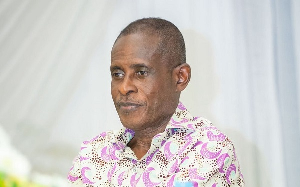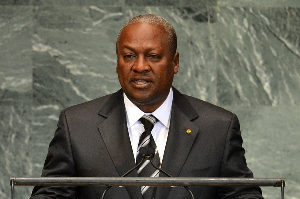I travelled to an African country at the invitation of an educational institute to interact with pupils of some selected basic schools. The country is one of the pioneers of the introduction of free secondary education on the continent of Africa.
I first visited a primary school, and there was this teacher who had a nasal problem and spoke through his nose. It happened that he was taking his pupils through numbers, and wrote them on the chalkboard for them to repeat after him.
"One," he said.
"One," the pupils responded through their noses.
"Two," he continued.
"Two," the children responded the same way.
The teacher thought his pupils were making fun of him, and so he paused and said, "Children, stop ! It's sickness!"
The children obeying a previous instruction by their teacher to repeat whatever he said, shouted through their noses, "Children stop! It's sickness!" The teacher was livid, and I was morbidly intrigued.
My next tour took me to a middle school where I was given the opportunity as a visiting author to interact with the pupils. I decided to test their knowledge on "question and answer tags". I gave an example: "The moon goes round the earth, doesn't it?" And I asked them to give me more examples. One boy stood up and said: "Sir, you like yam, yamin't?" Another shouted, "John likes food, foodn't it?"
I whispered, "Ayeka". Immediately, a girl near me stood up and asked, "Ayeka it?" Anyway, don't blame those poor children; question and answers tags could be somehow challenging at times.
During one of the Supreme Court electoral petition cases, even someone with a PHD against his name repeatedly made some terrible answer tag errors. Kikikikiki, please don't ask me who the one is, you and I were not there abi. I don't want any trouble oo. If you want to know the truth just go for the records, it is there yageni, yageni.
That notwithstanding, I think the children's poor academic performance could be blamed on their country's improper handling of their free secondary education.
And like Ghana, even though enrollment in Senior High Schools has significantly shot up, the quality of education has disturbingly plummeted because of improper planning and insufficient resources to meet the growing classroom population.
H.E. John Mahama has promised that if he becomes the next president of the Republic on January 7, 2025, he will assemble all stakeholders in the education sector including parents to brainstorm to find a homegrown solution to the challenges confronting the Free SHS Policy.
He knows that the best legacy that a society can bestow onto its youth is a good education, and doesn't want to compromise at all. This is cutting-edge leadership; this is discerning leadership. This is leadership par excellence!
H.E. John Dramani Mahama is indubitably the quintessential leader--humble, decisive, bold, intelligent, and innovative. He has more under his sleeve, let us vote massively for him on December 7 for him to take Ghana to another level of her glory. I bet you! He will take our breath away.
Opinions of Wednesday, 8 May 2024
Columnist: Anthony Obeng Afrane
Mahama has a unique way of solving problems
Opinions














